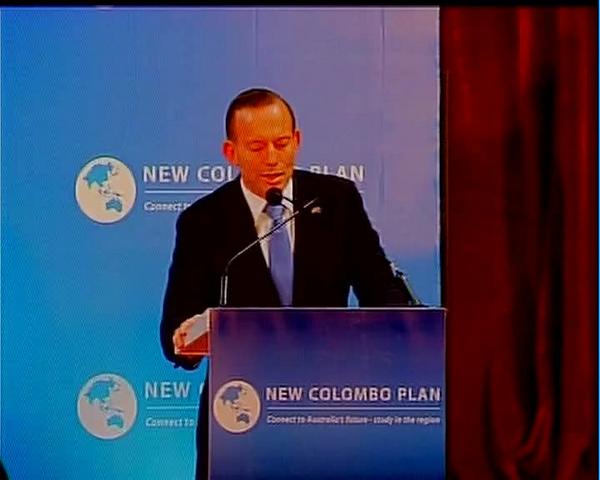.
.
.
According to Goldman Sacks the Indian economy in real terms will increase from the current $5.2 trillion PPP measured GDP to $35 trillion by 2050.....maintaining her current position of third largest economy in the world.
That is a seven fold increase in 36 years.
The business opportunities are MASSIVE.
India holds between $70--130 trillion worth of minerals on the landmass, and probably another $20--30 trillion near her shores. Depending on prices and extracting technology.
One of the cheapest labor forces in the world which contains over 700 million workers.
It is a English speaking country, sort of.
The current government is hell bent on the development of INFRASTRUCTURE, INDUSTRY, poverty alleviation and modernization.
AUSTRALIA is the leading country in the world which efficiently manages its resources for the betterment of the country....per capita income by PPP is $44,000. The so called 'Evening Economy.'?
Australia has not been hit by the 2008 global recession and her medium sized economy has weathered the storm successfully. The Australian economy is not neo-liberalised to the extent of Canada or the UK. In fact the social welfare programs are at a par with Sweden, as are the levels of National and State taxes.
____________________________________________
India offers 'abundance' of opportunity, Australian PM Tony Abbot tells business leaders in Mumbai
.
By Times of India..
Australian Prime Minister Tony Abbot arrived in India on Thursday on a two-day visit during which he is expected to sign a long-awaited deal to sell uranium to the energy-starved nation.
"The purpose of this trip, as far as I'm concerned, is to acknowledge the importance of India in the wider world, acknowledge the importance of India to Australia's future," he told business leaders in Mumbai.
"There is an abundance of opportunities here in India. I am determined to make the most of them."
The Australian PM is expected to meet Narendra Modi and senior ministers during his visit which also aims at boosting trade.
Abbott is expected to sign an agreement in Delhi on Friday when he meets Modi, who swept to power in May promising to open up Asia's ailing third-largest economy to foreign investment.
India and Australia kick-started negotiations on uranium sales in 2012 after Canberra lifted a long-standing ban on exporting the valuable ore to Delhi to meet its ambitious nuclear energy programme.
Australia, the world's third-largest producer of uranium, had previously ruled out selling the metal because nuclear-armed India has not signed the Nuclear Non-Proliferation Treaty.
Trade minister Andrew Robb, who is travelling with Abbott, said Canberra is now happy with India's precautions to ensure Australian uranium exports would be used only for peaceful purposes.
"We have satisfied ourselves that the steps (for appropriate safeguards) are in place," Robb said this week.
"We expect significant outcomes from the visit to further enhance our partnership," said Sanjay Bhattacharya, Indian foreign ministry joint secretary, on the eve of Abbott's arrival.
 ANI ✔
@ANI_news
Follow
ANI ✔
@ANI_news
Follow
We have much to offer to India& India has much to offer to Australia,so much we can learn from each other-Tony Abbott
"For us, Australia is a major supplier of resources, particularly energy necessary for our development needs."
.
Before heading to Delhi, the premier will also meet Indian cricketing great Sachin Tendulkar and former Australian stars Adam Gilchrist and Brett Lee, ahead of Australia's hosting of the World Cup next year.
.
But analyst and former Indian diplomat Neelam Deo said all eyes will be on the nuclear deal, which will boost future exports and heralds closer strategic ties. "The deal has been in the works for years and was mostly negotiated by the previous Labor government," Deo, director of Mumbai-based think-tank Gateway House, told AFP. "The signing of the deal removes one of the only challenges to closer ties between the countries in the region."
.
India, which is heavily dependent on coal for generating power, has 20-odd small nuclear plants with plans for more. The deal with Australia would potentially ramp up those plans, as India struggles to produce enough power to meet rising demand and suffers crippling power shortages.
.
Australia's decision to overturn its ban on sales to India followed a landmark 2008 deal between Delhi and Washington for the United States to support its civilian nuclear program.